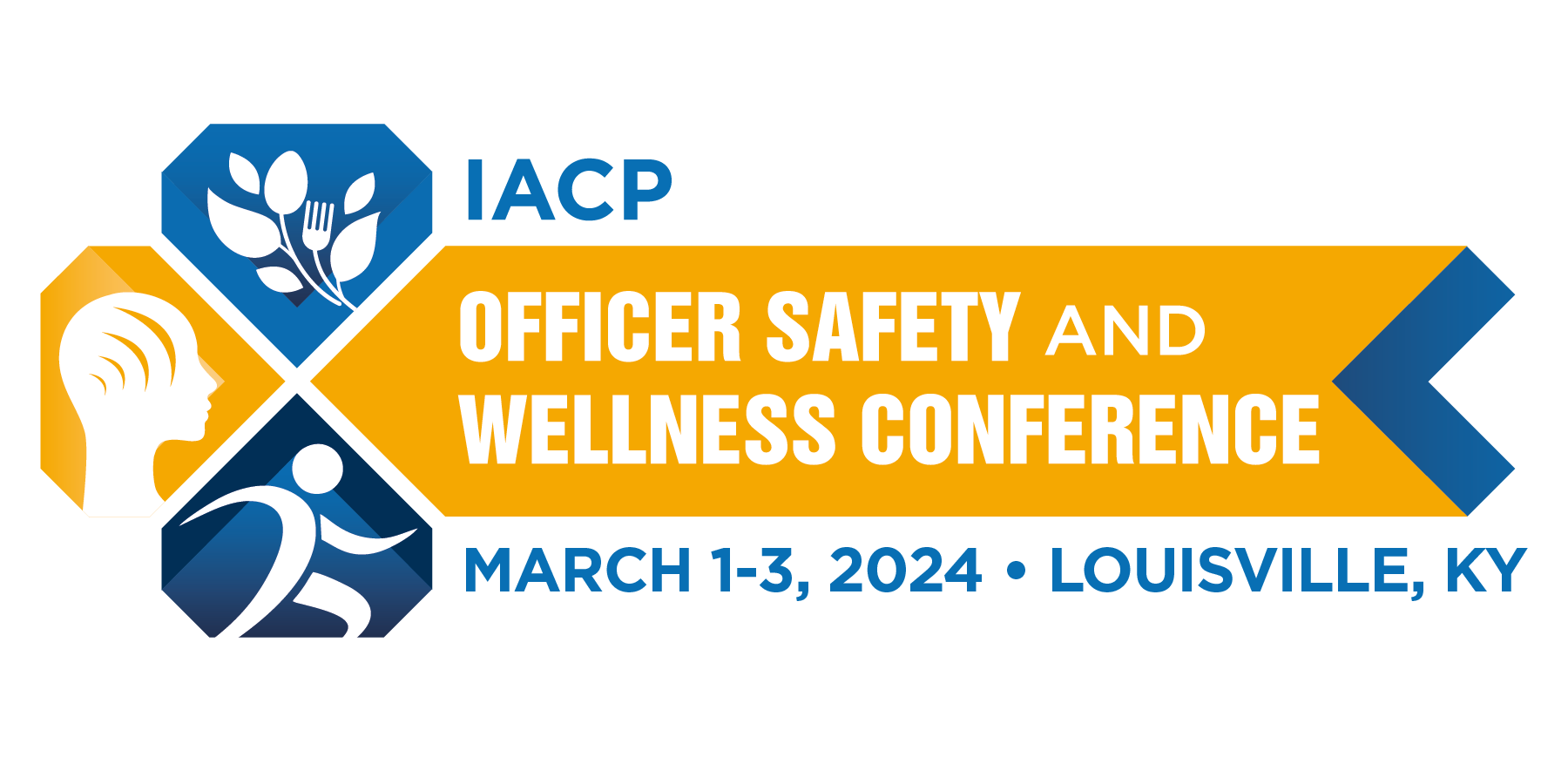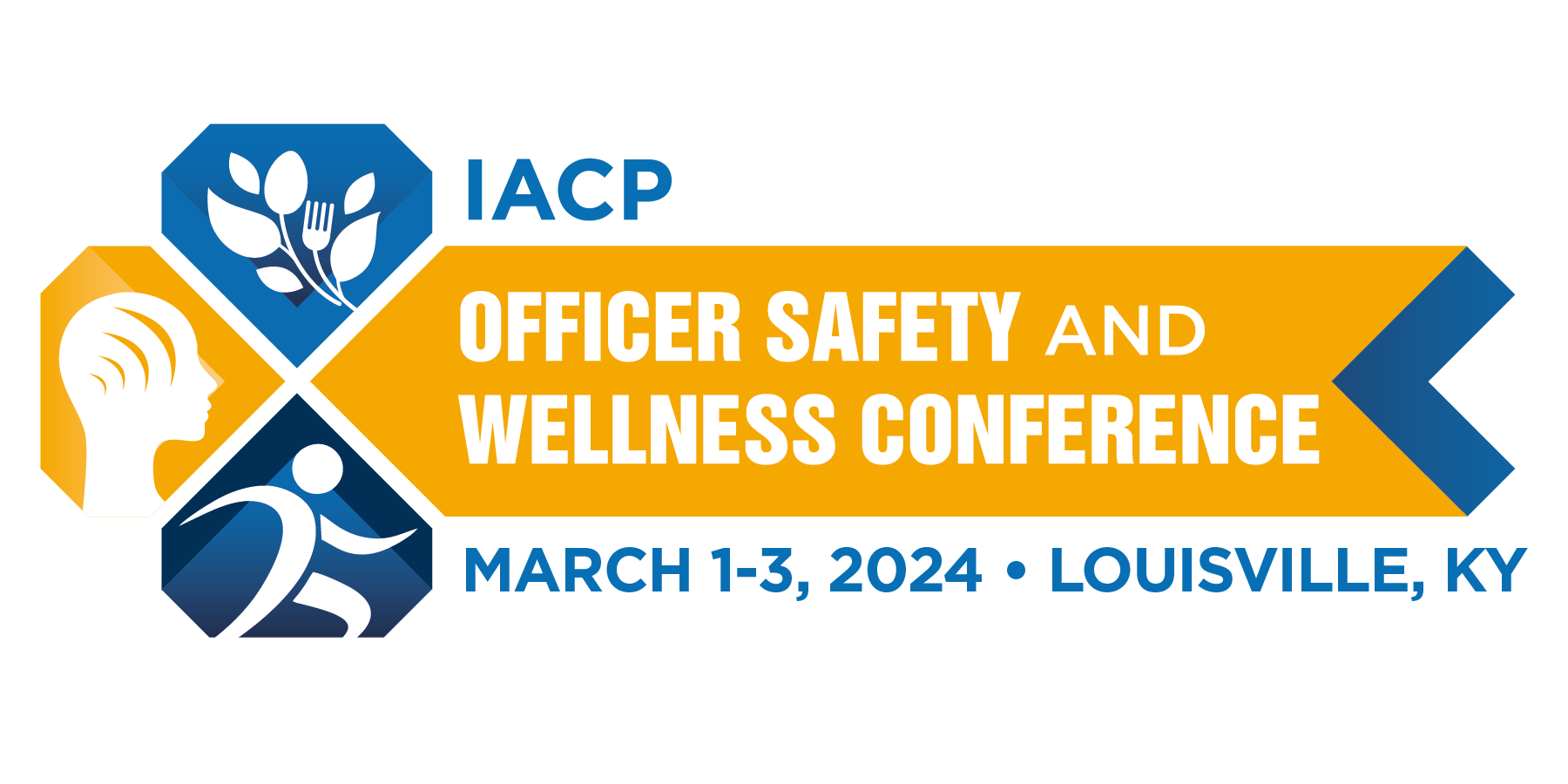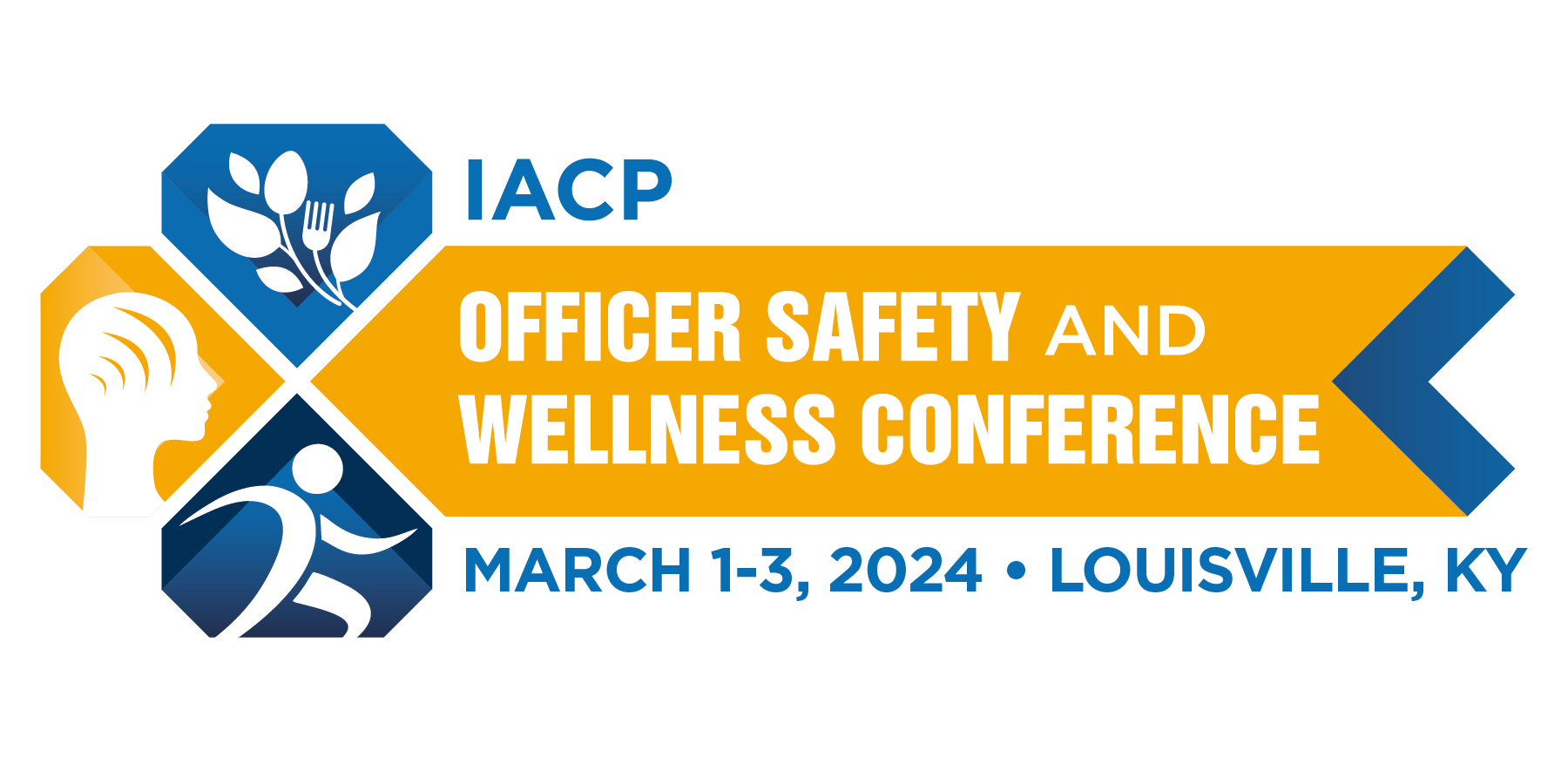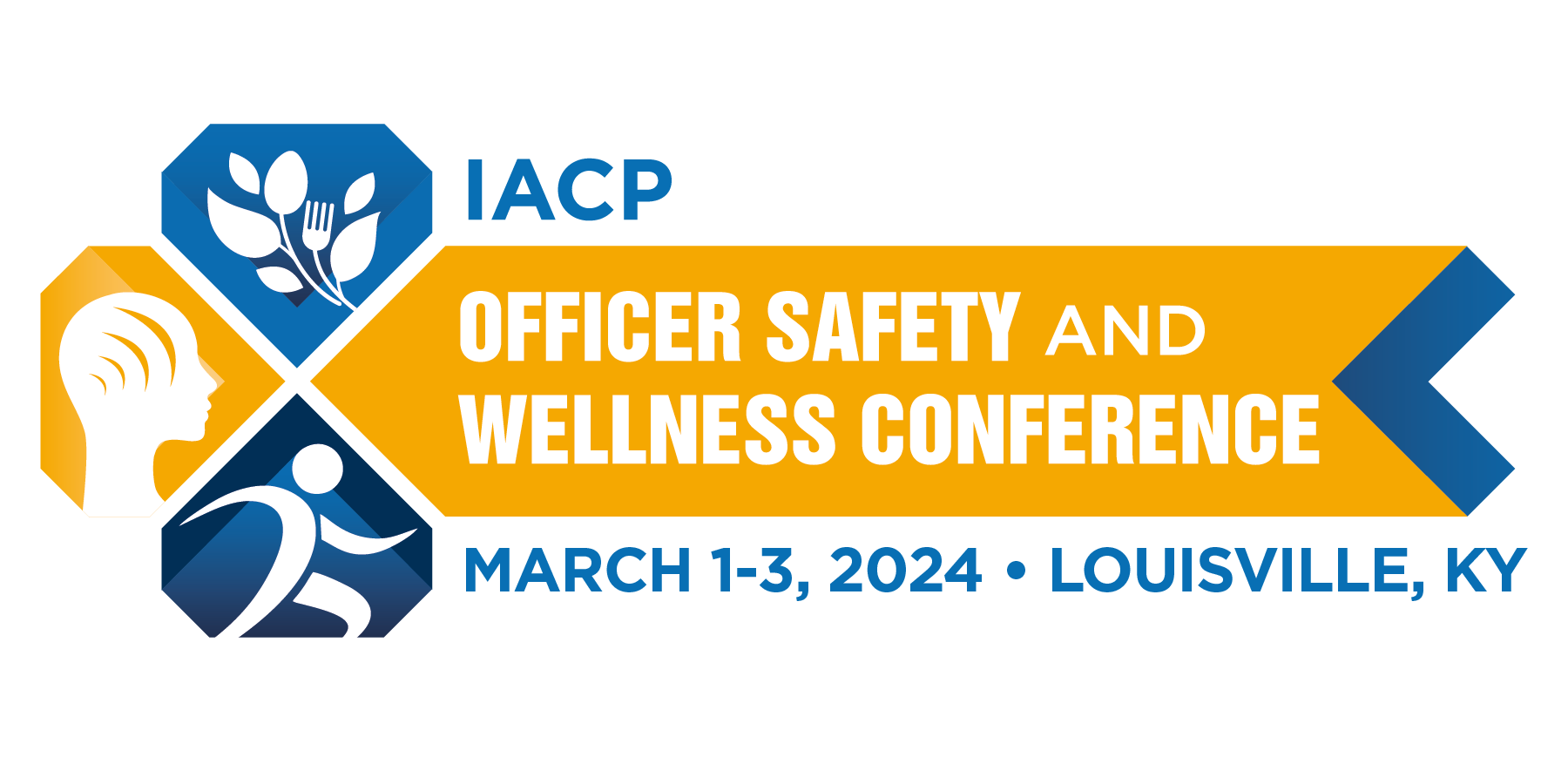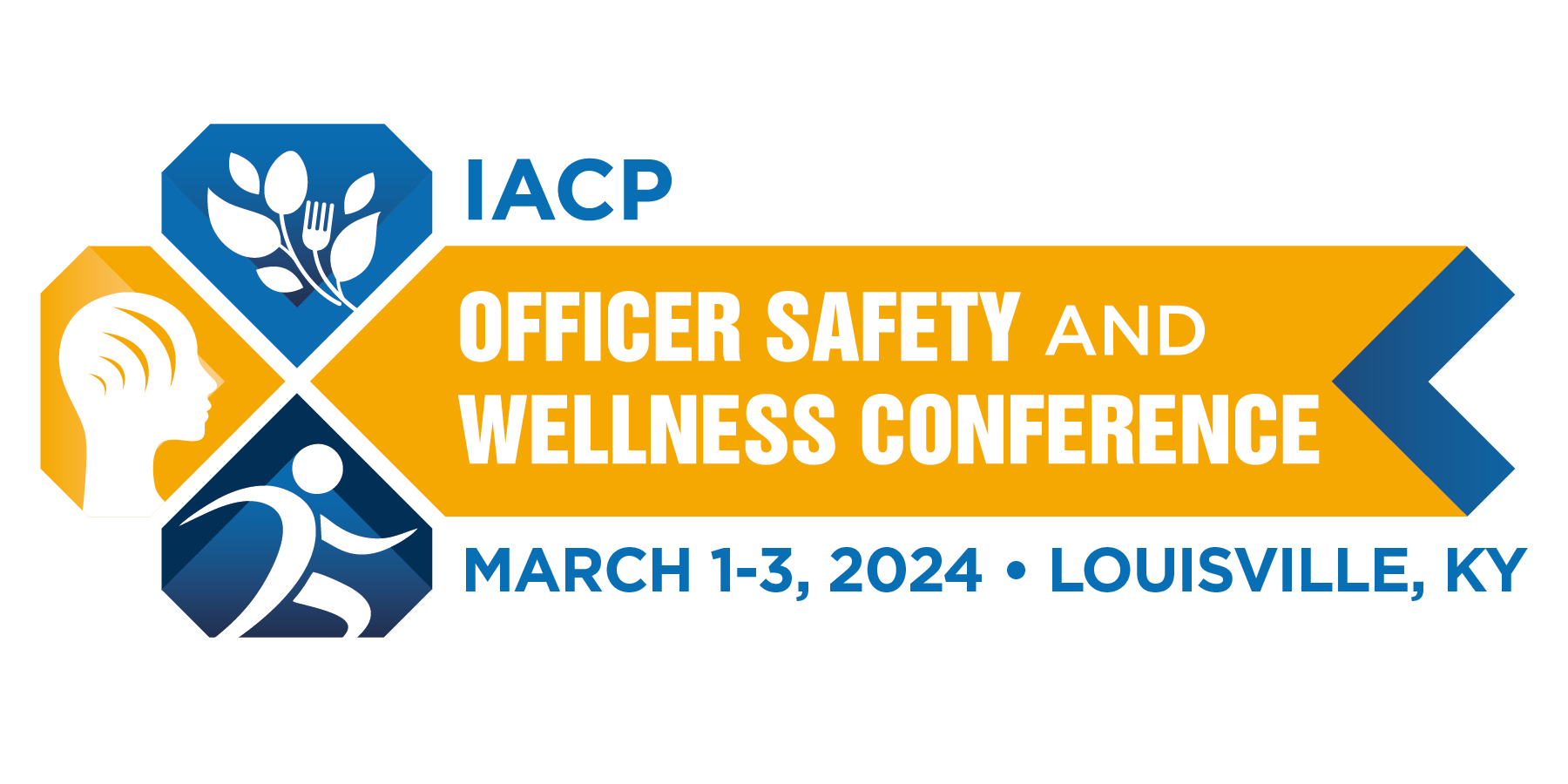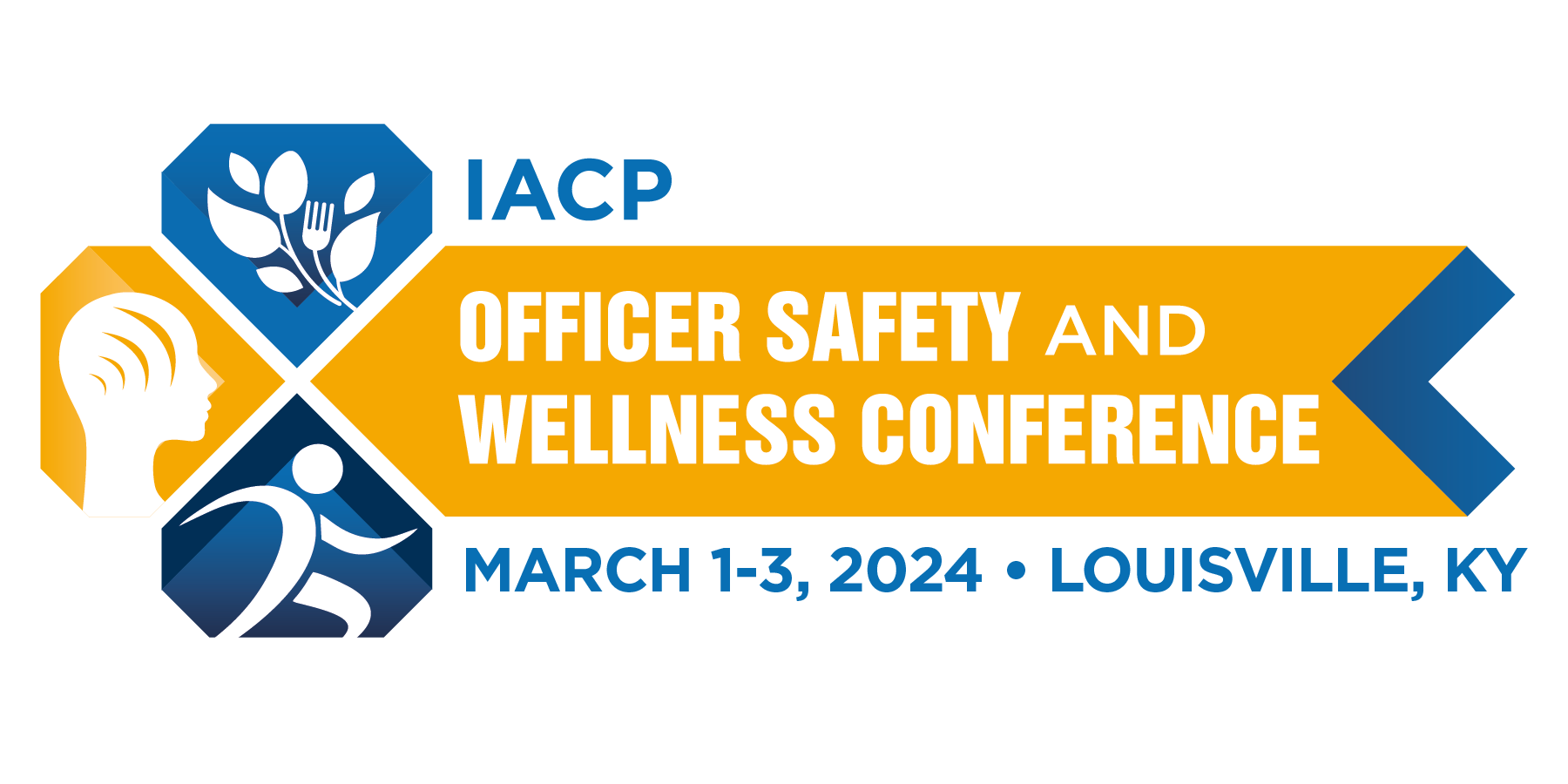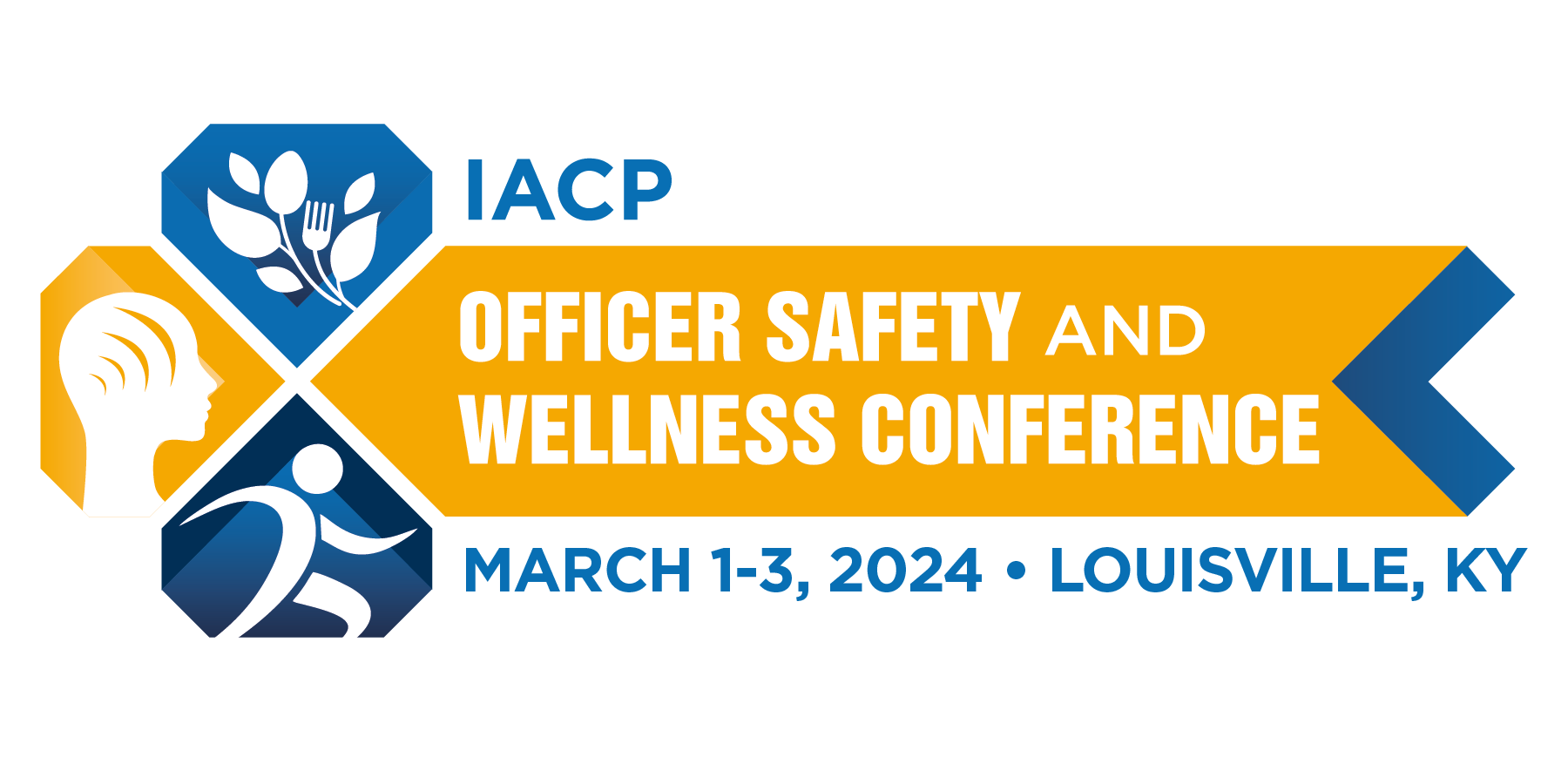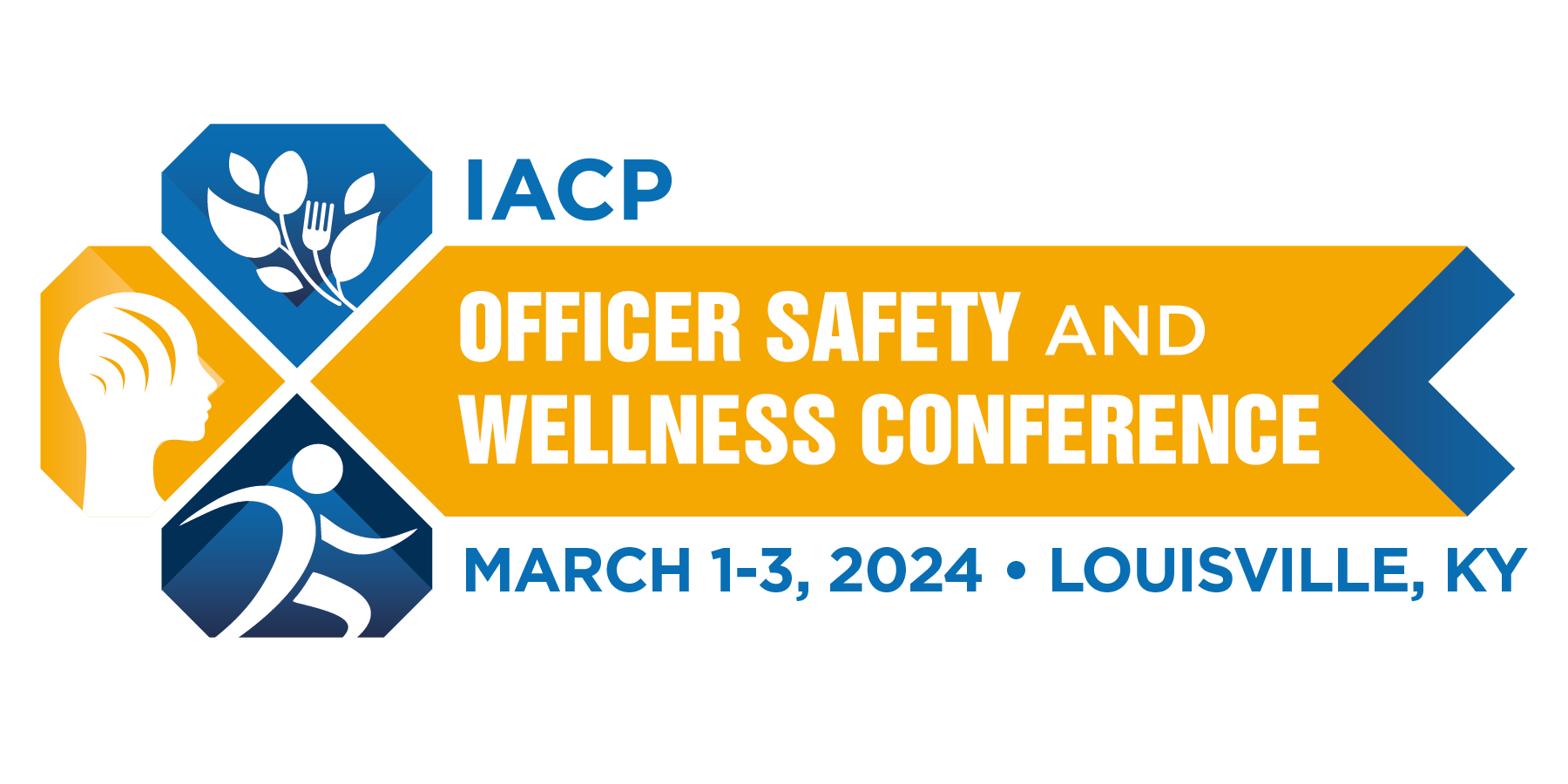
Catalog Advanced Search
-
Contains 55 Product(s)
The 2024 Officer Safety and Wellness Symposium is for public safety professionals to learn from experts in the field about resources and best practices when developing comprehensive officer safety and wellness strategies. Virtual registration for the 2024 OSW Symposium will give you access to three live-streamed general sessions (March 1-3, 2024) and dozens of pre-recorded workshops only available through IACPlearn. All workshops listed in the educational program will be available virtually, unless indicated otherwise, and will be accessible on-demand to view at your leisure. Virtual attendees will learn about building resilience, financial wellness, injury prevention, peer support programs, physical fitness, proper nutrition, sleep deprivation, stress, mindfulness, suicide prevention, and more.
The Officer Safety and Wellness Virtual Conference is for public safety professionals to learn from experts in the field about resources and best practices when developing comprehensive officer safety and wellness strategies. Virtual registration for the 2024 Officer Safety and Wellness will give you access to three live-streamed general sessions (March 1-3, 2024) and dozens of pre-recorded workshops only available through IACPlearn. All workshops listed in the educational program will be available virtually, unless indicated otherwise, and will be accessible on-demand to view at your leisure. Virtual attendees will learn about building resilience, financial wellness, injury prevention, peer support programs, physical fitness, proper nutrition, sleep deprivation, stress, mindfulness, suicide prevention, and more.
If you encounter any issues, please contact us at:
learn@theiacp.org
800-THE-IACP
-
Register
- Non-member - $485
- Member - $230
- More Information
-
Register
-
Contains 1 Component(s)
This session explores the growth that can come from difficult times and challenging situations. Presenters will introduce the concept of post-traumatic growth and how finding meaning from experiences can be protective and strengthening for resilience and overall mental health and wellness.
Presentation Description: In life and work, the challenges will keep coming. This session explores the growth that can come from difficult times and challenging situations. Presenters will introduce the concept of post-traumatic growth and how finding meaning from experiences can be protective and strengthening for resilience and overall mental health and wellness.
- Upon completion, participants will be able to understand what happens to your neurological, physical, psychological, emotional, and spiritual health when you listen to traumatic stories day after day by exploring the characteristics of post-traumatic growth and vicarious trauma.
- Upon completion, participants will be able to safeguard well-being by examining how meaning-making can be used as a powerful protective factor.
- Upon completion, participants will be able to recognize the characteristics of growth including greater appreciation of life, sense of increased personal strength, and the sense for greater possibilities.

Anthony Maez
Deputy Commander
The Innocent Justice Foundation
Anthony Maez, BS is a recognized national trainer and lecturer in various areas of law enforcement. He has provided extensive training on violent crime investigations, technology used to stalk, internet crimes against children, and human trafficking investigations. Drawing on his vast knowledge, he authored several investigative guides for law enforcement and prosecutors in these critical subjects..jpg)
Beth Medina
CEO/Program Director
The Innocent Justice Foundation
Beth Medina, MFT serves as the CEO/Program Director at The Innocent Justice Foundation where she works in collaboration with the SHIFT and HART teams and provides oversight for the programs. Beth has more than 20 years of experience in non-profit, education and mental health fields. She is an International speaker, trainer and advocate on topics related to trauma recovery and mental health and wellness. She holds a Master's Degree in Marriage and Family Therapy and a B.A. in Political Science/History.
Anthony M. Maez is a Deputy Commander with the Albuquerque Police Department (APD) and former Special Agent in Charge with the Office of New Mexico Attorney General and the Commander of the New Mexico Internet Crimes Against Children (ICAC) and Human Trafficking Task Forces. Anthony has been in law enforcement in New Mexico for over 34 years. Anthony trains and consults nationally and internationally for the Innocent Justice Foundation, Supporting Heroes in Mental Health Foundational Training (SHIFT). He holds Bachelor of Science degree in Occupational Education from Wayland Baptist University and a Master of Arts in Business and Organizational Security Management from Webster University.-
Register
- Non-member - Free!
- Member - Free!
- More Information
-
Contains 1 Component(s)
This presentation will focus on what a suicidal person thinks and feels, to allow for a peer to emotionally validate them. Most importantly, this presentation will tell attendees how to identify suicidal ideations, intents, and plans and, regardless of your role, how to convey to the suicidal individual that they should be addressing these thoughts. Furthermore, discussing what the suicidal individual should do and what a peer should tell the suicidal individual to do. The presenter will model what to say and how to say it.
Presentation Description: This presentation will focus on what a suicidal person thinks and feels, to allow for a peer to emotionally validate them. Most importantly, this presentation will tell attendees how to identify suicidal ideations, intents, and plans and, regardless of your role, how to convey to the suicidal individual that they should be addressing these thoughts. Furthermore, discussing what the suicidal individual should do and what a peer should tell the suicidal individual to do. The presenter will model what to say and how to say it.
- to articulate how suicidal persons should view their suicidal thoughts, and how you should tell them to view their suicidal thoughts
- to identify 3 immediate and evidenced-based skills that a suicidal person can implement when acute distress spikes
- to identify 3 things you can say to emotionally validate the suicidal person
.jpg)
Stephanie Barone McKenny, PhD
Police Psychologist, Los Angeles, California, Police Department
Dr. Stephanie Barone McKenny is an LAPD police psychologist who provides consultation to several elite units including SWAT, Air Support Division, and undercover agents. She has worked with law enforcement personnel at the international, national, state, county, and local levels. Dr. McKenny is also a Diplomate in Sports Psychology, a Nationally Certified Sports Psychologist, a Certified Trauma Professional, and she is Certified in Integrative Medicine for holistic health (mind-body-spirit).
-
Register
- Non-member - Free!
- Member - Free!
- More Information
-
Contains 1 Component(s)
Improving officer safety and wellness starts with leadership and organizational culture change, as well as encouragement to seek out and receive help. With this focus, law enforcement can improve outcomes in their approaches to responding to those who are having a mental health crisis.
Presentation Description: Suicide is a significant public health problem and eliminating veteran suicide is a top Veterans Affairs (VA) priority. The VA has many initiatives that target veterans who are in high-risk populations, to include law enforcement. Many officers who are military veterans are at higher risk for suicide due to multiple identities and other factors. The VA Suicide Prevention Office has partnered with the VA Police Service to address officer health and wellness. Improving officer safety and wellness starts with leadership and organizational culture change, as well as encouragement to seek out and receive help. With this focus, law enforcement can improve outcomes in their approaches to responding to those who are having a mental health crisis.
- Upon completion, participants will describe what the VA is currently doing to identify suicide prevention as a public health crisis and eliminating suicide among Veterans, many who are in law enforcement positions.
- Upon completion, participants will understand what and how the VA is working to improve outcomes when responding to Veterans having a mental health crisis.
- Upon completion, participants will learn strategies for improving organizational culture to better address officer safety and wellness.
-
Register
- Non-member - Free!
- Member - Free!
- More Information
-
Contains 1 Component(s)
This presentation will discuss how the expansion of police training related to de-escalation and crisis intervention response has helped to improve officers' skills and communications in the community. Specifically, as administrators of the Peer Support and the Hostage Negotiations Teams, presenters have learned that there are shared skills among these personnel that are crucial to their success.
Presentation Description: This presentation will discuss how the expansion of police training related to de-escalation and crisis intervention response has helped to improve officers' skills and communications in the community. Specifically, as administrators of the Peer Support and the Hostage Negotiations Teams, presenters have learned that there are shared skills among these personnel that are crucial to their success. These skills include empathy, active listening, critical thinking, emotional intelligence, and self-awareness. Though not everyone will meet these qualifications, it is essential that these skills are identified and enhanced. Presenters will share examples of techniques that can assist in selecting and training a peer team.
- Upon completion, participants will be able to understand the best practices in research and training related to de-escalation and crisis intervention within your department's peer support program as well as in the community.
- Upon completion, participants will be able to describe the five essential skills needed for an effective peer support team member.
- Upon completion, participants will be able to conduct techniques that can be used when assessing if an individual has the skills needed to be an effective peer support team member.
-
Register
- Non-member - Free!
- Member - Free!
- More Information
-
Contains 1 Component(s)
Multidisciplinary teams, like the ECM human trafficking task forces, can struggle with turnover, both of organizations and individuals, making succession planning a challenge. Webinar panelists from Enhanced Collaborative Model (ECM) Human Trafficking Task Forces share how to prepare for the unexpected including task force members departing, new organizations joining, and ensuring there are policies and practices in place for avoiding gaps in knowledge or assistance for victims and survivors when task force members leave. Panelists highlight strategies to create consistency in victim services and response, even when turnover happens, assuring task forces are sustainable.
Multidisciplinary teams, like the ECM human trafficking task forces, can struggle with turnover, both of organizations and individuals, making succession planning a challenge. The IACP hosted a 60-minute panel discussion with former and current members of the Alabama Anti-Human Trafficking Alliance and the Eastern District of Missouri Human Trafficking Task Force (St. Louis). They shared how to prepare for the unexpected including task force members departing, new organizations joining, and ensuring there are policies and practices in place for avoiding gaps in knowledge or assistance for victims and survivors when task force members leave. Panelists highlight strategies to create consistency in victim services and response, even when turnover happens, assuring task forces are sustainable.
This webinar is part of the OVC funded IACP’s Enhanced Collaborative Model Human Trafficking Task Force Training Catalog.
After this webinar, participants will be better able to:
• Understand issues of sustainability and turnover within human trafficking task forces;
• Examine how two other task forces have addressed these issues; and
• Develop and implement their own task force succession plans.
Presenters:
• Chris Lim, Director of Research and Policy, Institute for Shelter Care (former Task Force Coordinator for Alabama Anti-Human Trafficking Alliance)
• Katie Beth McCarthy, Task Force Coordinator, Alabama Anti-Human Trafficking Alliance
• Anna Foster, Human Trafficking Task Force Coordinator, Eastern District of Missouri Human Trafficking Task Force
• Detective Sergeant Brian Shanika, Commander, Eastern District of Missouri Human Trafficking Task Force-Deputy Commander of Missouri Internet Crimes Against Children Task Force
• Emily Rathjen, Anti-Trafficking in Persons Program Manager, International Institute of St. Louis
• Sabrina Fernandez, Program Manager, International Association of Chiefs of Police (Moderator)For more information, contact IACP’s Anti-Human Trafficking Team at humantrafficking@theiacp.org.
This webinar and materials are produced by the International Association of Chiefs of Police under Cooperative Agreement #2020-VT-BX-K002, awarded by the Office for Victims of Crime, Office of Justice Programs, U.S. Department of Justice. The opinions, findings, and conclusions or recommendations expressed in this webinar are those of the contributors and do not necessarily represent the official position or policies of the U.S. Department of Justice.

Anna Foster
Human Trafficking Task Force Coordinator
Eastern District of Missouri Human Trafficking Task Force
Anna Foster (she/her), MSW, is a graduate of the Brown School of Social Work where she specialized in international social and economic development, human rights policy, and social work practice with immigrants and refugees. Anna has served as the Task Force Coordinator for the Eastern District of Missouri Human Trafficking Task Force since January 2022. In her two years with the Task Force, Anna has implemented updated protocols for the multidisciplinary team, emphasizing using a trauma-informed, victim-centered, and human rights-based approach to providing services to potential and identified victims of trafficking. Anna has trained over 600 medical personnel, first responders, service providers, law enforcement, and community members on human trafficking, highlighting the basic definitions and dynamics, common indicators, and how they have seen human trafficking impact their communities.

Chris Lim
Director of Research and Policy
Institute for Shelter Care
Chris Lim has more than 10 years of experience in the anti-human trafficking field working in law enforcement, academia, and with non-profit organizations. He has trained service providers and investigators on both sex and labor trafficking. Chris has conducted undercover and security operations, taught and researched human trafficking at the University of Alabama, and regularly speaks at conferences. Chris is the author of a book and is published in several academic journals and textbooks. His work has brought him to the Philippines, Cambodia, Jordan, Kenya, Malaysia, Taiwan, Jamaica, Thailand, and throughout the United States. He has a Master’s in Business Administration and is currently pursuing a Ph.D. in Public Policy at Liberty University. Chris served as the Coordinator for the Alabama Human Trafficking Task Force appointed by the Alabama Attorney General. He currently serves as the Director of Research and Policy for the Institute for Shelter Care.

Katie Beth McCarthy
Task Force Coordinator
Alabama Anti-Human Trafficking Alliance
Katie Beth McCarthy, JD, is the Coordinator for the Alabama Anti-Human Trafficking Alliance, a project of the Office of the Attorney General of Alabama. Katie Beth holds a Bachelor of Arts in Communication, and a Master of Science in Counseling, and a Doctor of Jurisprudence. She has worked in the victim services field for almost 20 years, serving victims of crime in multiple roles and capacities. As a former therapist for child abuse victims, a certified Victim Services Officer, and a Training Coordinator for Multidisciplinary teams across the state of Alabama, Katie Beth has also led three different agencies as an Executive Director: the Chester County Children’s Advocacy Center, the Alabama Network of Children’s Advocacy Centers, and One Place Family Justice Center in Montgomery, AL. She is certified in trauma-focused – cognitive behavioral therapy, as well as certified in community crisis response team by NOVA. Katie Beth has led numerous trainings in the Southeast – Vicarious Trauma & Building Resiliency, Guardian Ad Litem Training, Stewards of Children, and training on Alabama’s rape statutes, to name a few. She was named a Patriotic Employer in 2023 by the Secretary of Defense and was given the Angels in Adoption Congressional Award in 2007. Her family was named Family of the Year in the River Region by WSFA & the Family Guidance Center in 2020. Katie Beth and her husband Patrick live on Lake Jordan in Wetumpka, Alabama, with their four adopted kids.

Det. Sgt. Brian Shanika
Commander, Eastern District of Missouri Human Trafficking Task Force
Deputy Commander, Missouri Internet Crimes Against Children Task Force
Detective Sergeant Brian Shanika is a 29-year veteran of law enforcement with demonstrated experience in all aspects of the police function from patrol to administrative investigations/strategies. Sergeant Shanika has been a field training instructor, a criminal investigator, patrol supervisor, and finally a Detective Sergeant who most recently spent six years investigating employee misconduct under the Chief of Police, in the Bureau of Professional Standards. Detective Sergeant Shanika took over supervision of the Special Investigations Unit in April 2021, and commands the Eastern District of Missouri Human Trafficking Taskforce, covering 49 counties on the eastern side of the state. Detective Sergeant Shanika is the Deputy Commander of the Missouri Internet Crimes against Children Taskforce.

Emily Rathjen
Anti-Trafficking in Persons Program Manager
International Institute of St. Louis
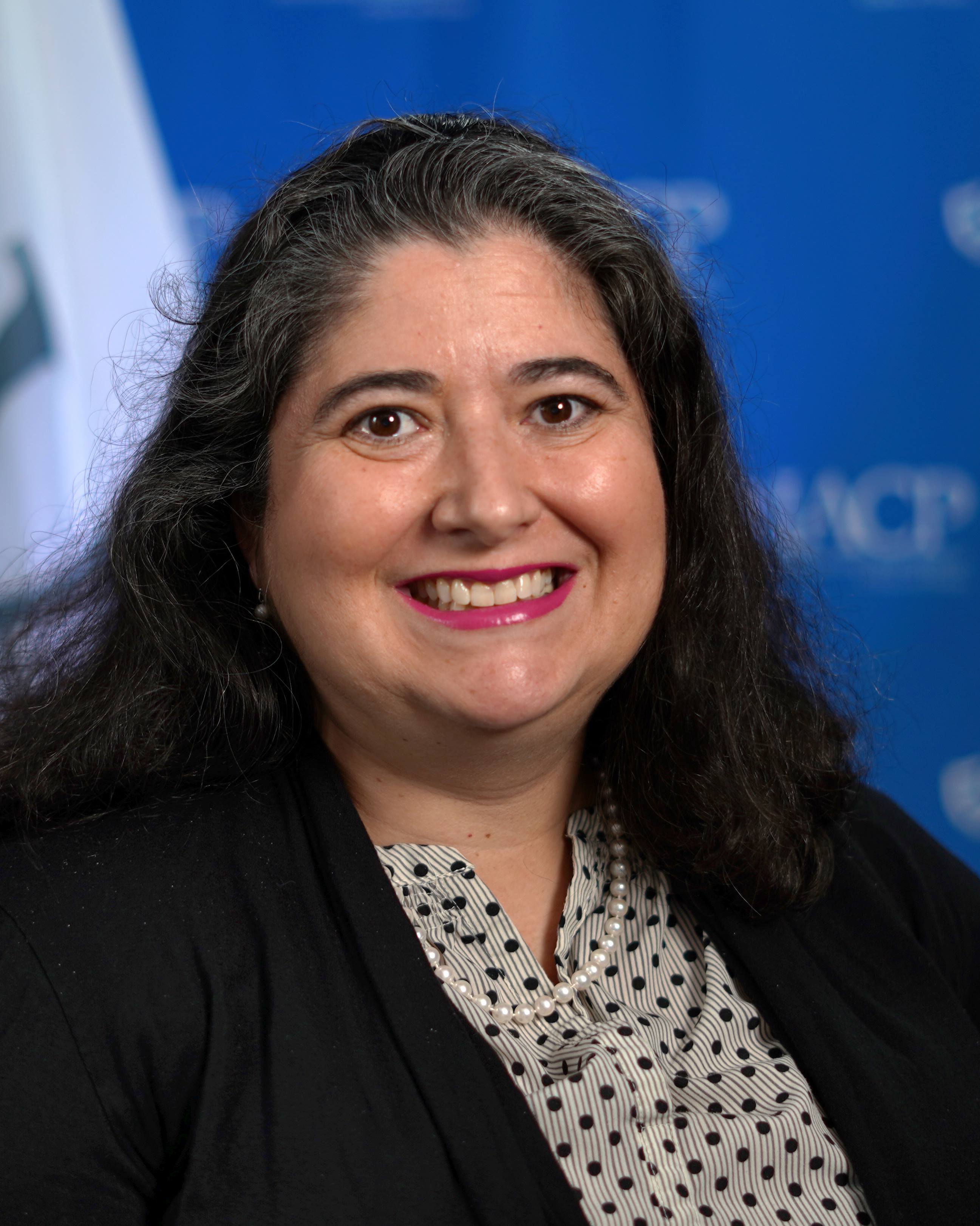
Sabrina Fernandez
Program Manager, IACP
Sabrina Fernandez is the Anti-Human Trafficking Program Manager at the International Association of Chiefs of Police (IACP), overseeing multiple human trafficking training and technical assistance (TTA) initiatives for law enforcement, prosecutors, and multidisciplinary anti-human trafficking task forces across the U.S. For over 12 years, she has enhanced law enforcement’s response to human trafficking and collaborated directly with the field to build anti-trafficking programming and resources.
Sabrina has been with the IACP since 2010, addressing policy and operational challenges facing law enforcement and developing tools and resources to assist law enforcement in investigating and prosecuting criminal activity, preventing and responding to victimization, and increasing community safety. Prior to the IACP, Sabrina worked at the University of Tennessee Law Enforcement Innovation Center and Tennessee Regional Community Policing Institute, the University of Tennessee's Social Work Office of Research and Public Service, and the Baltimore Office of Homeless Services, after spending four years at the beginning of her career as a social worker and social policy advocate.
Sabrina’s 17-year law enforcement TTA portfolio includes: human trafficking, juvenile justice and child protection, school safety, school/justice collaborations, cybercrime, crime analysis, gang investigations, patrol and tactical operations, crime prevention, and crime-scene investigation.Sabrina has a Master of Arts in Public Policy from The Johns Hopkins University and a Bachelor of Arts in Sociology, English and French from Drury University. She can be reached at fernandez@theiacp.org.
-
Register
- Non-member - Free!
- Member - Free!
- More Information
-
Register
-
Contains 1 Component(s)
In this session, learn the five elements that every law enforcement family needs to know to counter the effect of the spillover which impacts a couple's communication, connection, and intimacy - essential parts of a healthy relationship.
Presentation Description: Officers cannot just "turn it off" when they arrive home to their families. It can be difficult for officers to not bring the work home, where their experiences can negatively impact their personal lives. On the flip side, home life can spill over and negatively impact an officer at work. The challenges of finding a balance are not new - however, if law enforcement families work on a plan to find a balance and protect their home life, it will help to strengthen family and officer wellbeing. In this session, learn the five elements that every law enforcement family needs to know to counter the effect of the spillover which impacts a couple's communication, connection, and intimacy - essential parts of a healthy relationship.
- Identify elements of classical conditioning that spill over from officer training and potentially negatively impact communication and connection in relationships and at home.
- Detect elements of spillover in connection and communication in a law enforcement relationship, including behavioral conditioning and negative narratives.
- Apply methods to educate officers and supportive partners on the spillover and positive impact of connection and communication, creating the possibility for greater officer safety.
-
Register
- Non-member - Free!
- Member - Free!
- More Information
-
Contains 1 Component(s)
During this session, attendees will learn how running a family support program can have minimal cost and high impact on your agency.
Presentation Description: Departments across the country are fighting concurrent struggles of recruitment, retention, and officer resilience. Agencies are subsequently paying more in personnel costs than they ever have before and wondering how they can sustain the pay that is needed to recruit and retain the best of the best. Offering family support is a valuable opportunity to impact officers, not only in the moment but for the rest of their lives. During this session, attendees will learn how running a family support program can have minimal cost and high impact on your agency.
- will be able to understand what family support is.
- will be able to understand the impact that offering family support to their department will have on recruiting, retention, and resilience.
- will be able to understand the different options that have been successful previously that they can implement with maximum impact within their own department,
-
Register
- Non-member - Free!
- Member - Free!
- More Information
-
Contains 1 Component(s)
Learn how a united, multi-agency effort has ignited a ripple effect across the county that is strengthening wellness programs, reducing stigma, and creating a diverse network of mental health and peer support.
Presentation Description: Many agencies must go it alone when it comes to wellness. Limited by resources and overwhelmed with demands, departments may struggle to meet employee wellness needs. In Greater Cincinnati, Ohio, wellness teams from Cincinnati Police Department, Cincinnati Fire Department, and Hamilton County Sheriff's Office have successfully implemented a collaborative model to divide joint administrative needs and share resources. Eliminating the proverbial reinvention of the wheel has allowed coordinators to place more focus on direct employee support while increasing wellness innovation within their own departments. Learn how a united, multi-agency effort has ignited a ripple effect across the county that is strengthening wellness programs, reducing stigma, and creating a diverse network of mental health and peer support.
- Participants will learn how to apply inter-agency wellness collaboration to increase program effectiveness, decrease agency cost, and increase accessibility of training and resources.
- Participants will be able to describe a framework for a comprehensive, multi-dimensional approach to responding to a potentially traumatic event (PTE).
- Participants will be able to demonstrate how standardization of best practices in first responder wellness benefits a region and increases quality of wellness services within an agency.
-
Register
- Non-member - Free!
- Member - Free!
- More Information
-
Contains 1 Component(s)
In this session, we will focus on three studies conducted by the FBI over a 30-year period. These foundational policing studies identified three components that exist in every police encounter: (1) the officer, (2) the circumstances, and (3) the person.
Presentation Description: In this session, we will focus on three studies conducted by the FBI over a 30-year period. These foundational policing studies identified three components that exist in every police encounter: (1) the officer, (2) the circumstances, and (3) the person. We will examine each one individually to understand and show how controlling each may help positively impact the outcome of each police encounter. By understanding the research and current trends and taking proactive measures within each of these three components, officers will be able to better mitigate risks associated with felonious attacks against law enforcement and improve officer safety.
- Be familiar with the historical studies that defined the "dynamics of officer safety and citizen interaction" to include the three components and how it relates to violence against law enforcement.
- Understand current trends that contribute to attacks upon law enforcement.
- Understand how to take proactive measures within each of the three components to mitigate risks of felonious attacks against law enforcement and improve officer safety.
-
Register
- Non-member - Free!
- Member - Free!
- More Information
